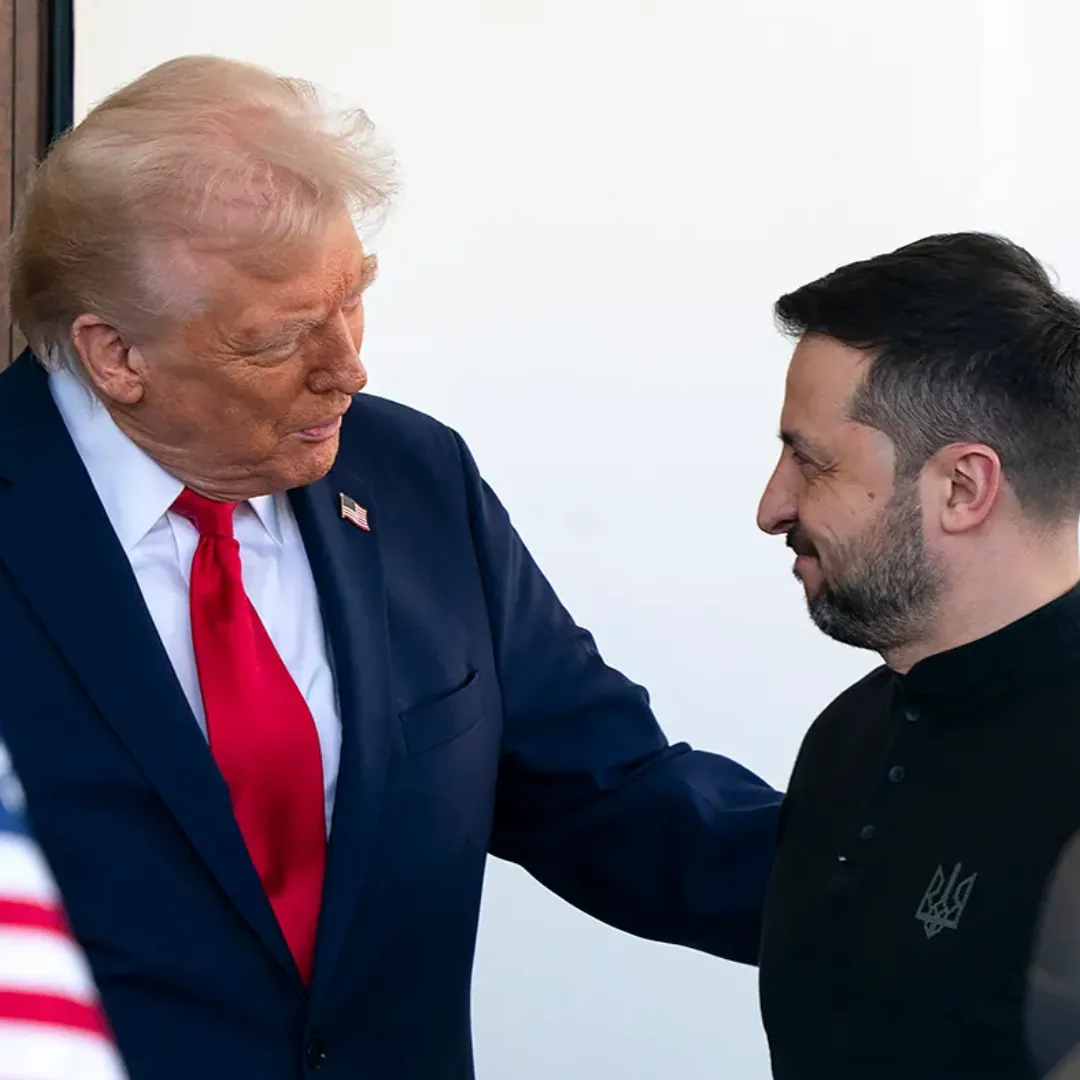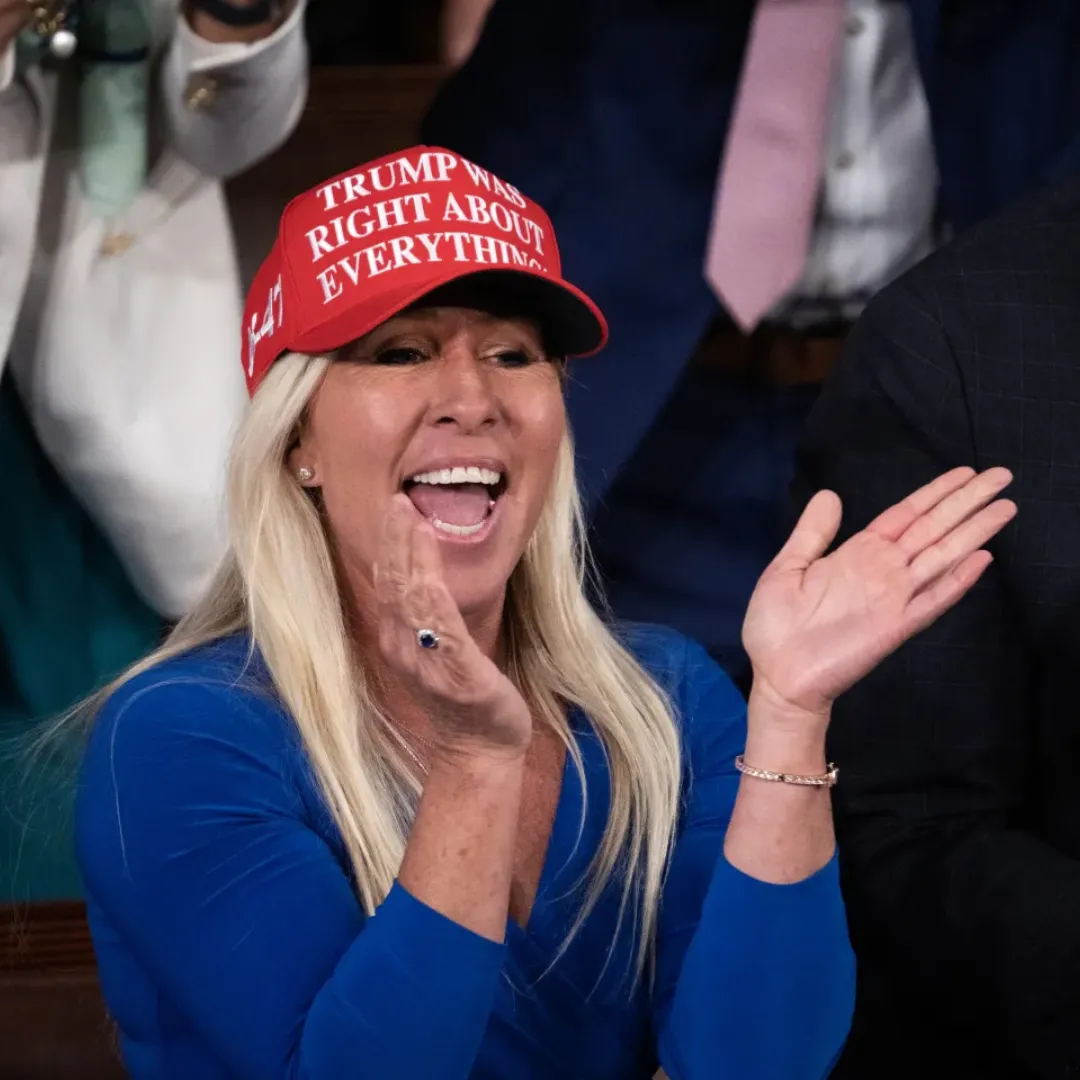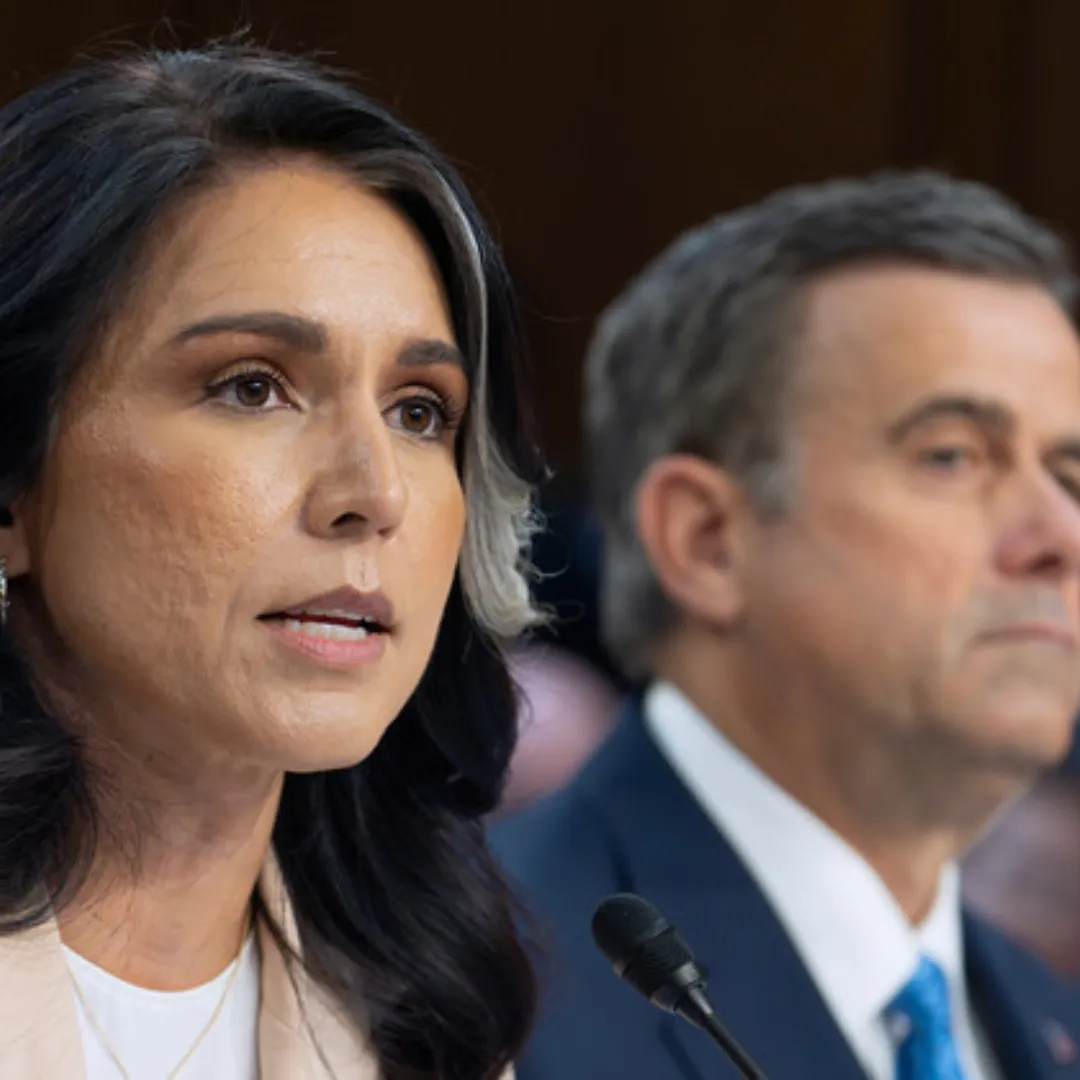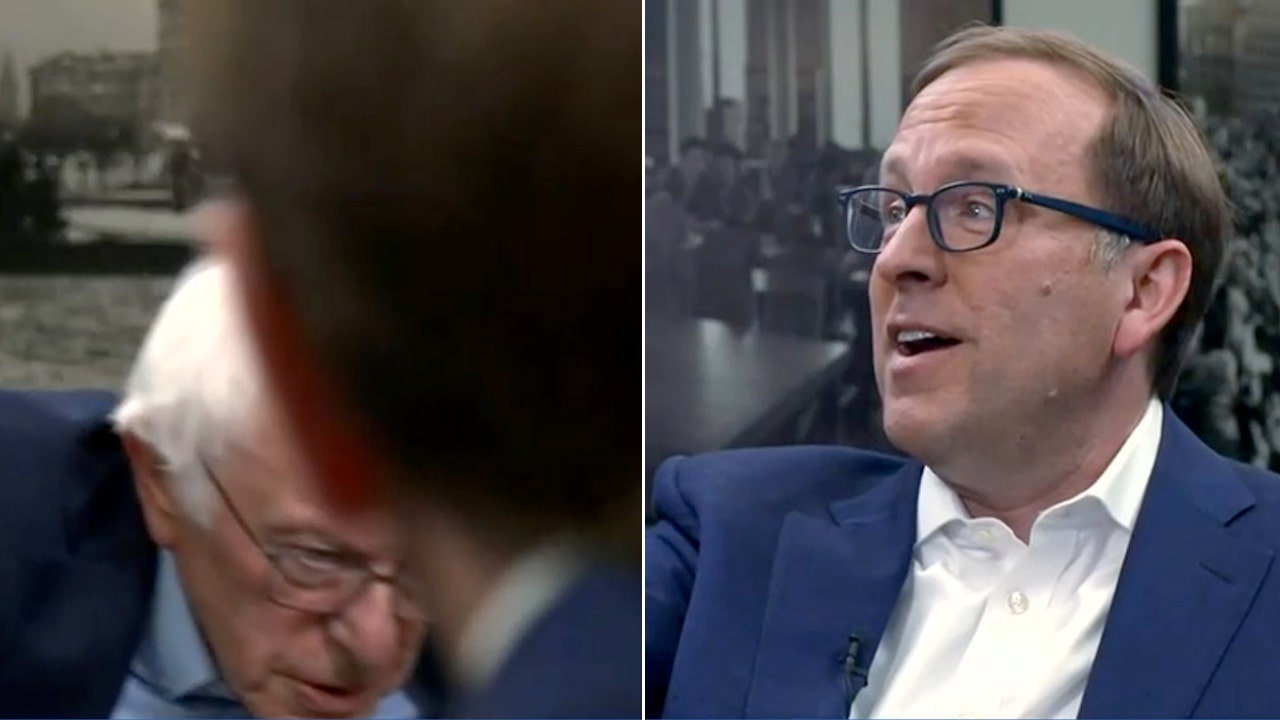
This past weekend, a seemingly innocuous question about Rep. Alexandria Ocasio-Cortez’s political future triggered an unusually terse moment between Senator Bernie Sanders and ABC News reporter Jonathan Karl. In a sharp exchange, Sanders dismissed speculation about whether the progressive congresswoman from New York might run for Senate, giving a brief but pointed response before standing up to leave the interview.
The brief exchange, which played out in front of a national audience, brought to light a growing tension in progressive politics. For years, Sanders and Ocasio-Cortez have been leading voices of the left-wing movement in Congress.
Together, they have fought to push progressive policies, rallied grassroots movements, and stirred excitement among young voters. Yet, even as they travel the country together on the "Fighting Oligarchy" tour, questions about the future of the progressive movement and potential rivalries loom large.
During the interview, Karl pressed Sanders about the possibility of Ocasio-Cortez entering the Senate race. Sanders, who has been one of Ocasio-Cortez’s most vocal allies, praised her work but quickly refused to delve into speculation about potential tensions in the Senate or Ocasio-Cortez’s future political ambitions.
“Would you like to see her join you in the Senate?” Karl asked, addressing Sanders directly. The question seemed to come as a natural follow-up to the progressive tour that Sanders and Ocasio-Cortez have been conducting in Western states to rally opposition to former President Donald Trump’s agenda.
“Right now, we have, as I said, just a whole lot of people in the Congress,” Sanders responded. The remark was vague but pointed, as Sanders shifted uncomfortably in his seat, perhaps sensing that the question was not one he was eager to entertain.
Karl, pressing further, noted that Sanders and Ocasio-Cortez had been working closely together on the "Fighting Oligarchy" tour, which has reportedly attracted tens of thousands of attendees. The progressive duo has used the tour to rally against corporate influence in government, emphasizing the need to create an inclusive economy that works for the many, not the few.
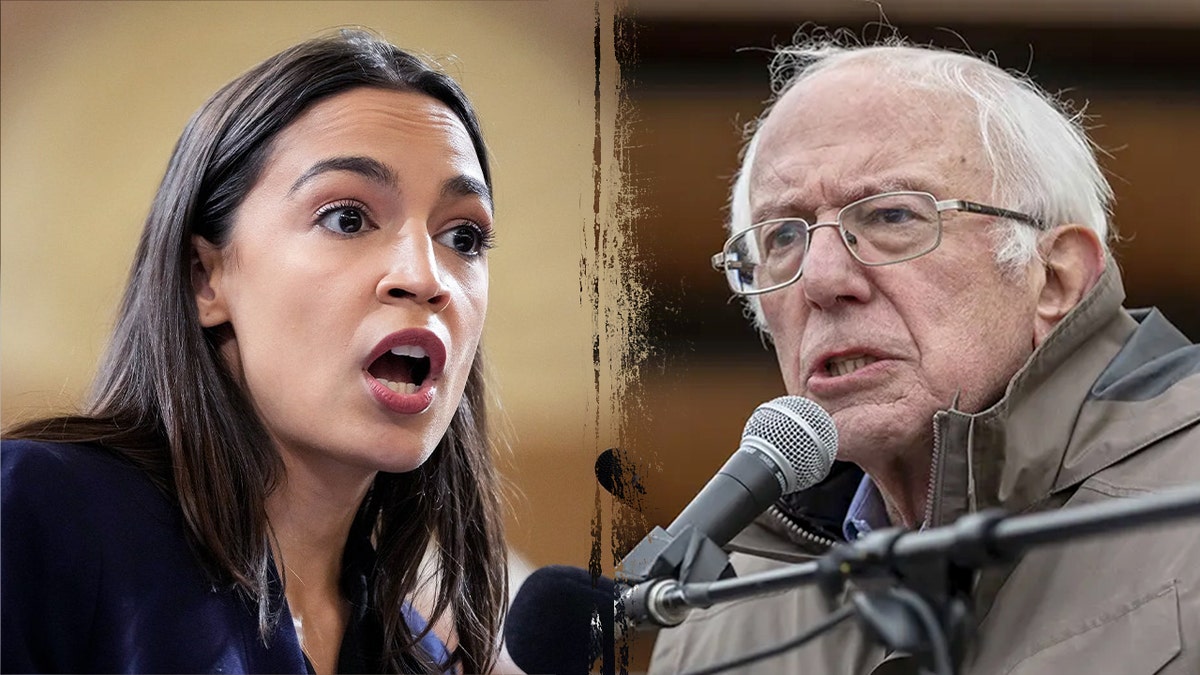
Still, Sanders was having none of it. He stood up to leave, adding, “OK, Jonathan, thanks.”
In a last-ditch attempt to keep Sanders at the table, Karl called after him: “Wait. I got one more. I got one more. This is important.”
To this, Sanders offered a quick rebuttal: “Well, I ask you, you know, you want to do nonsense? Do nonsense.”
Karl, somewhat taken aback, replied, “No.”
“I don’t want to talk about inside-the-Beltway stuff,” Sanders concluded firmly, signaling his unwillingness to engage in the kind of political speculation that has become all too common in Washington.
While Sanders’ response may have been dismissive, it reflects a broader sentiment that is increasingly dominating progressive discourse: an unwillingness to be bogged down by political gamesmanship.
Sanders, who has long positioned himself as an outsider to the establishment, has often expressed frustration with the conventional ways of doing politics—particularly the constant focus on what-ifs, hypothetical campaigns, and the relentless pursuit of political power for its own sake.
At a time when many Americans are grappling with issues like climate change, economic inequality, and the ongoing fight for universal healthcare, Sanders is choosing to focus his efforts on what he believes is most important—real, substantive change.
His sudden departure from the interview speaks to the growing impatience among certain sectors of the progressive movement. They are tired of the inside baseball of Washington politics and more interested in real action that will improve the lives of everyday people.
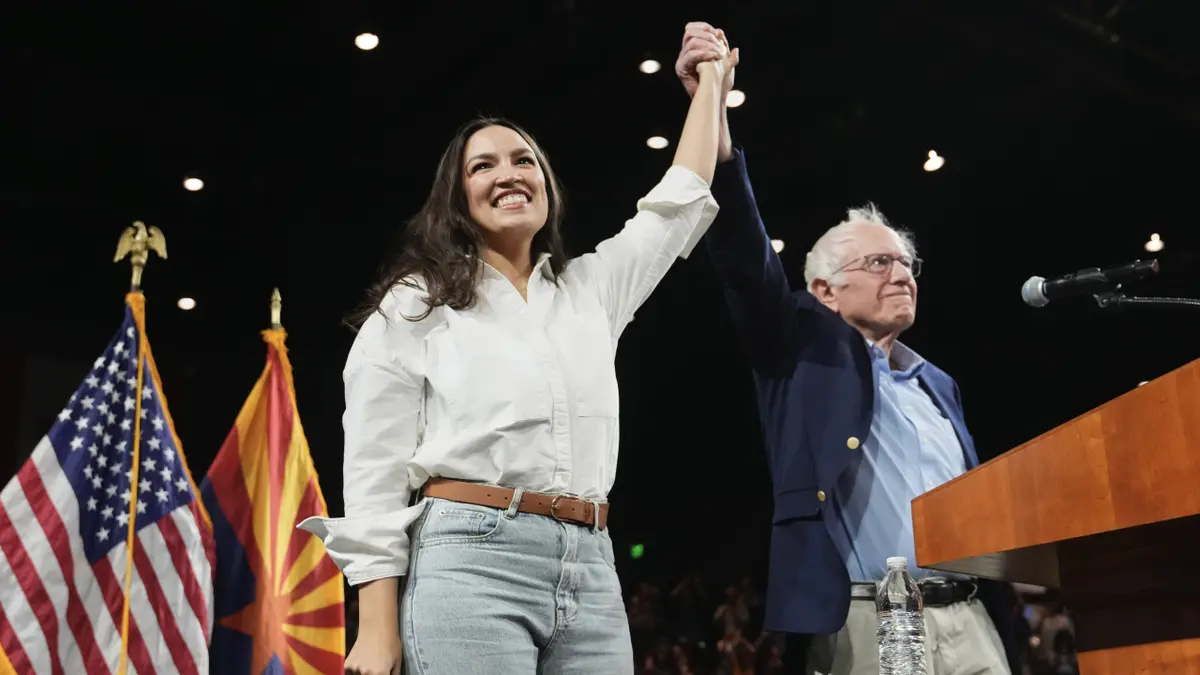
Before his departure, however, Sanders did take the opportunity to praise Ocasio-Cortez, acknowledging her as “extraordinary.” The senator spoke highly of her work in Congress, emphasizing her ability to inspire young people across the nation.
Sanders’ praise came in the context of a broader reflection on the success of the “Fighting Oligarchy” tour, where both he and Ocasio-Cortez have spoken passionately about the need for political reform, greater economic justice, and the dismantling of corporate power in Washington.
“I am so impressed by her work in Congress and her, just, she inspires young people all over the country,” Sanders said. His words were genuine, underscoring the sense of camaraderie that exists between the two figures, who have become central to the progressive movement’s fight against political establishment and corporate influence.
Nevertheless, Sanders quickly redirected the conversation, saying he didn’t want to engage in talk about potential Senate campaigns. He reiterated his disinterest in discussing these kinds of hypotheticals, which, in his view, distracted from the important work that needed to be done on the ground.
The exchange underscored the growing divide between the established political institutions in Washington and the grassroots, outsider movements that have been gaining traction. Sanders has long positioned himself as a champion of working-class Americans, and his focus remains on policies that help people directly rather than on the internal squabbles of political elites.
As the interview progressed, Karl shifted the conversation back to Sanders himself, asking about his future in politics and whether he would consider running for president again. Sanders responded diplomatically, saying, “Right now, I am very proud that the people in the state of Vermont sent me back to the Senate with 63 percent.
Right now, I’m Vermont’s senator. That’s what I do, and I’m very happy to do it.”
The 83-year-old senator acknowledged his age and the toll that years of intense political work have taken on him. “I am 83 years of age, and I’m tired,” he admitted. It was a moment of rare vulnerability for a man who has spent decades fighting for progressive causes.
Despite his advancing age, Sanders remains a key figure in American politics. He has built a movement that transcends traditional political lines, drawing support from millions of Americans who are disillusioned with the status quo and want a leader who is not afraid to take on corporate interests and entrenched political power.
Ocasio-Cortez’s relationship with Sanders is significant, but so too is the growing sense that her future may involve more direct confrontations with the establishment. She has already voiced strong opposition to Senate Minority Leader Chuck Schumer (D-N.Y.), criticizing him for his vote in favor of a GOP-written bill to keep the government open.
Schumer’s actions have renewed speculation about whether Ocasio-Cortez might mount a primary challenge against him in the coming years.
While the 35-year-old congresswoman has not yet announced any formal intentions to run for Senate, her outspoken criticism of Schumer and her rising profile in progressive circles suggest that she may be preparing to play a more central role in shaping the future of the Democratic Party. Whether that involves running for Senate or continuing to serve in the House remains to be seen.
But one thing is clear: Ocasio-Cortez’s political ambitions will continue to drive the conversation in Washington for years to come.
The episode between Sanders and Karl, while seemingly minor, is a reflection of a larger shift in the political landscape. Progressives like Sanders and Ocasio-Cortez are no longer content to play by the rules set by Washington insiders.
They are carving out their own path, focusing on policy and issues that matter to the American people, and challenging the establishment at every turn.

The public’s growing disillusionment with traditional political figures only amplifies the importance of figures like Sanders and Ocasio-Cortez. As the country faces unprecedented challenges, it is clear that the future of progressive politics will be defined by those who are willing to take bold stances and challenge the status quo.

